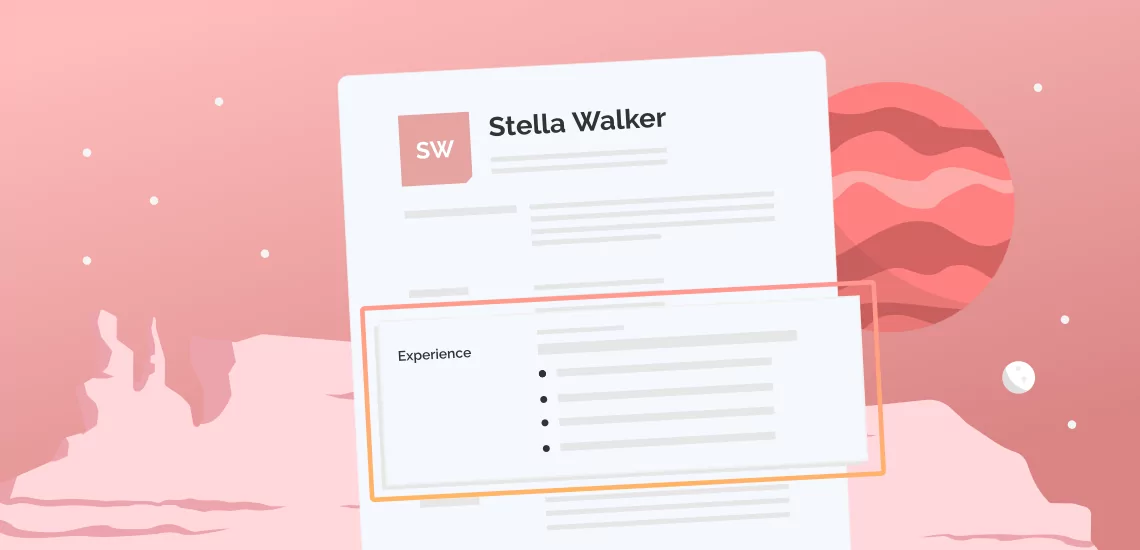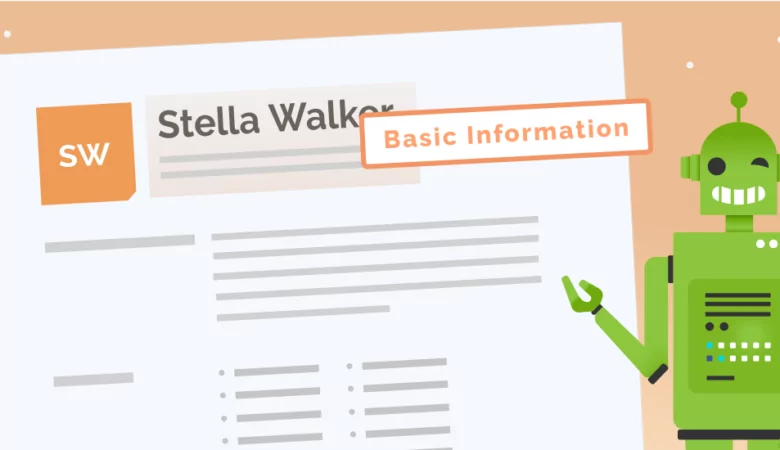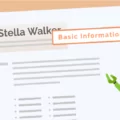Your professional experience is one of the most important sections of your resume. Do you know how to best showcase your work experience?

How to Add Work Experience to Your Resume This Year
Work Experience Resume
Your work experience is undoubtedly the first thing that hiring managers will look to when they receive your resume, no matter what resume format you use. The details of your previous job titles and what experiences and achievements you may have had in them can tell recruiters a lot about your capabilities. This article will show you how to make the most of your work experience on your resume.

Why is Work Experience Crucial on a Resume?
Work experience is the meat of most resumes; it tells a recruiter that you are capable of doing the job they are hiring for. Whether you are applying for entry-level work or a high-level role like CEO or CFO, your work experience will be crucial to catching a hiring manager’s attention. If you have a shortage of relevant experience from past jobs, all is not lost; you can also list voluntary work and internships on your resume to supplement your work experience. A lack of relevant work experience need not be the end of any job application if you know how to properly list what job experience you do have on your professional resume.
How to Properly List Work Experience on a Resume
The perfect resume is one that is easy to scan and informative. Write about past jobs in the past tense (and current jobs in present tense), and make sure that the work experience section of your resume is easy to scan. The size and location of the work experience section will depend on which resume format you use. Generally speaking, the best resume format is the traditional chronological resume format, as prospective employers will find it easy to locate your work experience section. If you are a recent graduate with limited experience, then a functional format may seem preferable, but keep in mind that some hiring managers have difficulty with this format.
Whichever format you choose, you should keep these points in mind when listing full or part-time work experience:
1. Job title
Provide the specific job title you held as accurately as possible. For example, if you were a social media manager you would list “Social Media Manager” here.
2. Company name
After the job title, indicate who you worked for and list the company name (e.g., “Social Media Manager, Company X”).
3. Employment dates
Provide your dates of employment, ideally by day, month, and year. If the job title is older, however, and you cannot remember the precise date, then you can simply list the month and year that you started work and the month and year that you left.
4. The location you worked in
List the town and state where you worked: for example, “NYC, New York”.
5. Key responsibilities and achievements
Once you have listed the basics, you should provide some bullet points about your duties and achievements. The majority of your hard and soft skills that you list in your skills section should be highlighted here. Show how you used them in a specific job. You should also give examples of your most notable achievements.
If you want to ensure that your resume work experience section is formatted properly, then you can use the ResumeNerd resume builder. This free online tool has a range of resume templates that you can use to create a stand out resume.
Three Tips To Improve Your Resume Work Experience Section
If you want to polish your work experience section to ensure that it shines brightly enough to show a hiring manager that you can fill the role they are advertising for, then consider these resume writing tips to take your job search to the next level:
-
Be specific about your achievements.
Use active and specific terms to describe your main achievements; action verbs can really show that you take ownership of your work experience. So, rather than writing “Was responsible for improving sales,” write “Created an upsell technique that improved sales by 15%”. You can carry this advice over to other parts of your resume (for example, your cover letter) to maximize your impact.
-
Emphasize relevant skills in non-relevant work experience.
If you have a job title in your work history that is not relevant to the job application you are making, then highlight relevant or transferable skills that you used in that role. This will help your resume rank well in applicant tracking systems (ATS) that many potential employers use to scan resumes.
-
List your work history in reverse-chronological order.
Whether you choose a chronological resume format or a functional format, list your work history in reverse-chronological order. This also applies to volunteer work and internships. Prospective employers will be more positive about your application if you make it easy for them to locate what they are looking for, whether that is professional certifications, volunteer experience, or relevant work experience.
Stick with traditional layouts and keep a professional tone to get the right results. If you want inspiration for how you can make your resume stand out while still keeping this professional tone, then consider resume examples that are relevant to your industry.
FAQ: Work Experience on a Resume
This depends on how much work experience you have. A great rule of thumb is to include up to ten years of work history on your resume. If you have less work experience than this, then you should include as much professional experience as you can (as long as it relates to the job you’re applying for). If you have more, then you should limit yourself to the job titles that fell within the last decade.
You do not need to explain employment gaps within your resume, but be prepared to answer questions about them in a job interview. Try to think of periods of unemployment in positive terms: what did you do, how did you grow, what did you learn? How can these experiences be of use going forward?
If you have undertaken internships or voluntary work that are relevant to the job description you are applying for, then it can be helpful to include them in your resume. This is especially the case if you lack professional experience. Recruiters will consider the value of unpaid work when reading a job seeker’s resume.








